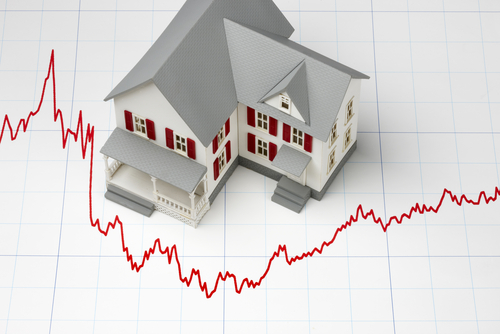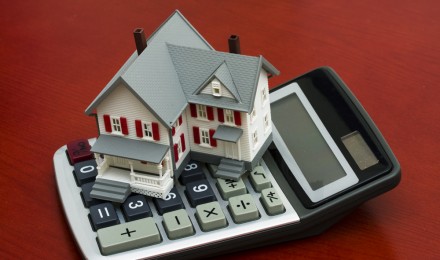Interest rates on mortgages are about as low as they have ever been. For many people, this situation makes it the ideal time to buy a home – perhaps their first. As would be expected, it is the interest rate that really adds to the overall amount of debt, and it also determines the size of the monthly payment. One way to reduce the interest, however, and possibly save many thousands of dollars, is to pay points in order to get a better interest rate.
Another way to lower your payment, however, is to take the same money that you would use to buy points (a point is one percent of the mortgage value), and simply use it to increase your downpayment. This will also decrease the total amount of debt, but it will not change the interest rate – which may not be necessary.
One very good aspect of paying points is that you can deduct the value from your taxes. It is looked at as a “prepaid interest,” says Realtor.com. They also add that the tax aspect is not handled the same with a home purchase and a refinance.
Probably one of the most important considerations to make before deciding whether paying points on mortgage is worth it or not, is to decide how long you are thinking about staying in your home. If it is not more than five years, it is doubtful that you will really benefit from it. BankRate reported that a term paper written by a student working toward her doctorate, who also worked as a senior economist, concluded that “borrowers tend to pay too many points because they overestimate how long they’ll keep the mortgage.”
When paying points, most lenders will reduce the interest rate on a 30-year mortgage by one-quarter of one percent for each one-point paid. By way of example, if you had a $250,000 mortgage for 7.0 percent, and paid one point ($2,500), this would reduce the interest to 6.75 percent. Realtor.com uses this example and says that this reduction in the interest rate would enable your payment to drop from $1,653 down to $1,612, which gives you a difference of $40 per month.
Another consideration is to calculate how long it would take to break even. This can easily be figured out by taking the price you paid for the point reduction, the $2,500, and then divide it by the monthly savings of $40. In this case, it would take 62 months to break even. This is why if you do not plan on staying in your home for five years or more, it would not really be worth it. Staying longer than that, say for the whole thirty years, however, would enable you to save as much as $14,400.
Many lending websites offer an online points calculator to help you determine whether or not it will be worth it for you to pay points. The best ones will allow you to enter in more numbers, which will give you a more accurate answer.
A final thing that you need to do is to shop around, says BankingMyWay. Lenders offer different interest rates on mortgages, and you may be able to find a better deal simply by shopping around. It may be possible to get a better rate without even having to pay points. Don’t forget, too, that closing costs will also affect the overall value of the loan.
Interest rates on mortgages are about as low as they have ever been. For many people, this situation makes it the ideal time to buy a home – perhaps their first. As would be expected, it is the interest rate that really adds to the overall amount of debt, and it also determines the size of the monthly payment. One way to reduce the interest, however, and possibly save many thousands of dollars, is to pay points in order to get a better interest rate.
Another way to lower your payment, however, is to take the same money that you would use to buy points (a point is one percent of the mortgage value), and simply use it to increase your downpayment. This will also decrease the total amount of debt, but it will not change the interest rate – which may not be necessary.
One very good aspect of paying points is that you can deduct the value from your taxes. It is looked at as a “prepaid interest,” says Realtor.com. They also add that the tax aspect is not handled the same with a home purchase and a refinance.
Probably one of the most important considerations to make before deciding whether paying points on mortgage is worth it or not, is to decide how long you are thinking about staying in your home. If it is not more than five years, it is doubtful that you will really benefit from it. BankRate reported that a term paper written by a student working toward her doctorate, who also worked as a senior economist, concluded that “borrowers tend to pay too many points because they overestimate how long they’ll keep the mortgage.”
When paying points, most lenders will reduce the interest rate on a 30-year mortgage by one-quarter of one percent for each one-point paid. By way of example, if you had a $250,000 mortgage for 7.0 percent, and paid one point ($2,500), this would reduce the interest to 6.75 percent. Realtor.com uses this example and says that this reduction in the interest rate would enable your payment to drop from $1,653 down to $1,612, which gives you a difference of $40 per month.
Another consideration is to calculate how long it would take to break even. This can easily be figured out by taking the price you paid for the point reduction, the $2,500, and then divide it by the monthly savings of $40. In this case, it would take 62 months to break even. This is why if you do not plan on staying in your home for five years or more, it would not really be worth it. Staying longer than that, say for the whole thirty years, however, would enable you to save as much as $14,400.
Many lending websites offer an online points calculator to help you determine whether or not it will be worth it for you to pay points. The best ones will allow you to enter in more numbers, which will give you a more accurate answer.
A final thing that you need to do is to shop around, says BankingMyWay. Lenders offer different interest rates on mortgages, and you may be able to find a better deal simply by shopping around. It may be possible to get a better rate without even having to pay points. Don’t forget, too, that closing costs will also affect the overall value of the loan.







